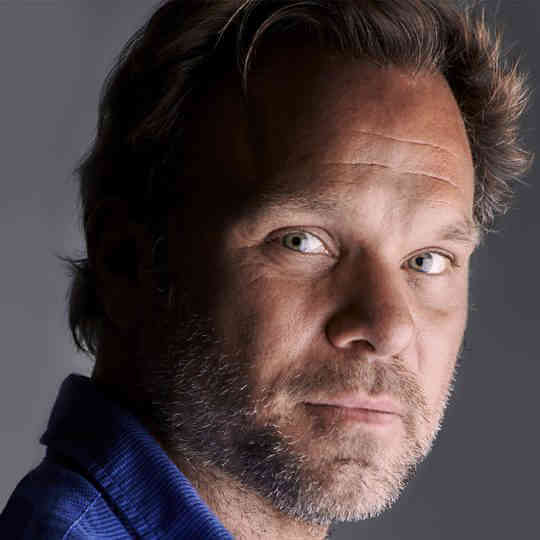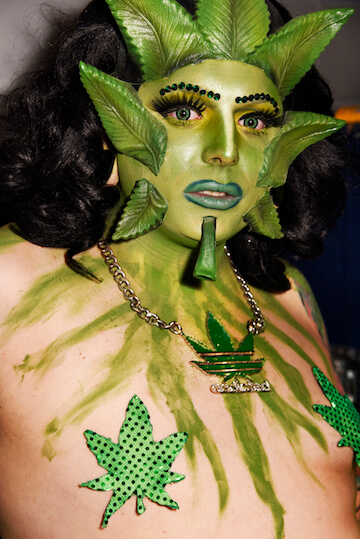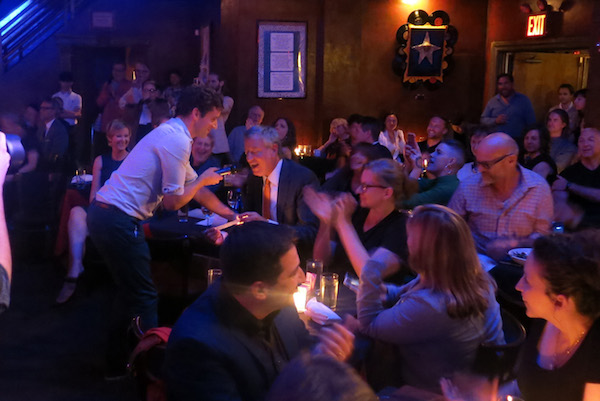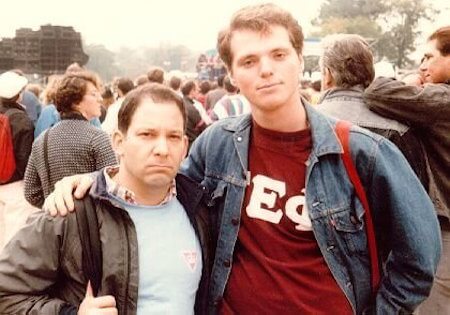Jamie Kastner’s “masterminds” in his new documentary, “The Secret Disco Revolution.” | SCREEN MEDIA/ FOCUS WORLD
BY GARY M. KRAMER | There is more to disco music than meets the eye posits an energetic new documentary from Jamie Kastner, “The Secret Disco Revolution.” The director argues that the music was a form of protest — not unlike what folk songs were during the Civil Rights era or the Woodstock Festival was at the height of opposition to the war in Viet Nam. Revolution in the ‘70s meant the fight against sexism, racism, and homophobia — and disco was a liberating influence in the lives of women, African Americans, and gays as they stepped forward to exert greater influence on society.
Kastner’s film articulates this thesis as he probes beyond the “vapid veneer” of disco and the spell it cast. Whatever the merits of that argument, the film suffers from a tacky framing device in which three silent “masterminds” — a woman, an African-American man, and a (presumably) gay man dressed in glittery, shimmering silver costumes — essentially act out what he sees as the “manifesto” animating the disco pop culture sensation. The results are silly scenes of the trio “mixing the recipe” while an irritating arch narrator provides voice-over explanation.
Jamie Kastner’s documentary revives vivid moments, but stumbles in its message
This approach detracts from a film that will otherwise be interesting for anyone who holds onto warm and fuzzy feelings about the polyester decade. Little is new in this film — “Saturday Night Fever” catapulted disco to its mainstream heights, and Studio 54 was the nightclub for celebrities and cocaine — but Kastner is on to something in the film’s celebration of an era that gave birth to the Village People. “The Secret Disco Revolution” argues that the group’s members, with hits like “Y.M.C.A.,” “Macho Man,” and “In the Navy,” were a subversive queer act — “Ambassadors of gay macho” with a message of empowerment — in an era when the predominate image of gay men remained one of effeminacy.
Kastner, however, gets no help in making this case in interviews with the Village People themselves, who object to his perspective. Challenging the notion that their songs were full of double entendres, they suggested they were nothing more than a party band out to have a good time. Their demeanor comes across as refreshing, even candid, though they do undermine the filmmaker’s thesis.
The interviews are the strongest elements in the film. Singers from Thelma Houston and Gloria Gaynor to Maxine Nightingale and Evelyn “Champagne” King offer testimony about their hard-fought efforts to cross over in an industry where radio stations often refused to play their hit records or relegated them to the R&B charts. The fact that lengthy disco songs like Donna Summer’s anthem “Love to Love You Baby” forced stations to alter their format — and squeezed on-air ad space — seems far more “revolutionary” than all the talk about Summer’s hit being a sex song, complete with female orgasms.
Still, the way disco frankly embraced sexuality was significant, and Kastner is right to point out that singers like Barry White, in performing songs focused on their giving pleasure to their women, made themselves pioneers of sorts.
And “The Secret Disco Revolution” is compelling in tracing how American music and its impact on society evolved. Connections are made linking Aretha Franklin to Little Kim with a disco through-line, and the film makes a case for the Hustle being a contemporary spin on the Lindy Hop. So, love it or hate it, the disco fad is significant as a cultural development. That point is underscored nicely when Martha Wash, of the Weather Girls, praises the gay community for making her song “It’s Raining Men” a queer anthem and showcasing her at pride parades years after the disco craze ended.
Kastner also includes interviews with Michael Musto, who talks about what New York City was like in the early 70s — “skanky,” and not in a good way — and what the real feel of Studio 54 was like. Musto puts a fine point on what others express in the film — that the ‘70s were a crazy time when anything goes and everything went.
The film chronicles the end of disco and the whole “disco sucks” movement that ultimately led to punk, but surprisingly it makes no acknowledgement of ‘70s queer/ glam performers like David Bowie and Elton John. And it misses the chance to show how disco was gay America’s last hurrah of exuberant free love before the onset of AIDS.
Instead, Kastner is more interested in pressing each of his subjects, including Harry Wayne Casey — KC of KC and the Sunshine Band — about whether their music was a form of protest. Despite hearing a resounding “No” across the board, he continues dancing to his own tune. In a film about a musical genre that needs to regain respect, Kastner has trouble winning respect for his underlying perspective.
“The Secret Disco Revolution” is not going to change minds about what precisely it is that disco represented, but it certainly provides an affectionate trip down memory lane for its fans —secret or otherwise. The songs featured in the film are as wonderful as the archival footage and interviews. If only the film’s message and approach had been more successful.
THE SECRET DISCO REVOLUTION | Directed by Jamie Kastner | Screen Media/ Focus World | Opens Jun. 28 | Quad Cinema, 34 W. 13th St. | quadcinema.com



































